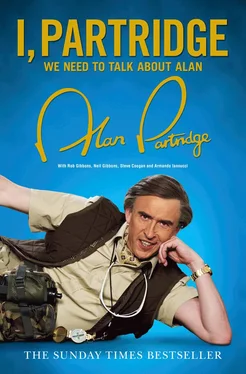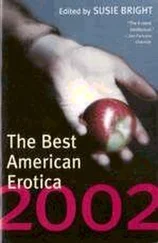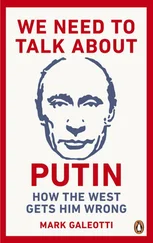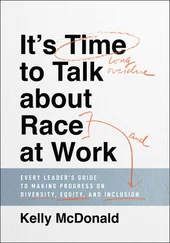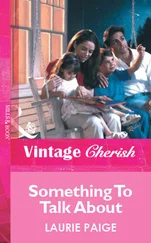So what had happened to me? How had I gone from the cossetted glamour of Our Price radio to the snarling, balls-out toughness of sports reporting? Well, I’d always been a keen sports fan. It seemed to me that the world of sport – with its reliance on stats, facts, trivia and rules – provided modern man with certainty and structure. Just as a well-fitting jockstrap cups the cock and balls of a sportsman, so sport cradled me. You know where you are with sport. It’s good.
And it’s all so logical. Watch a play by Shakespeare or go to a modern art gallery, and no one has the faintest idea what the hell is going on.
Take Shakespeare. Not a play goes by without one character whispering something about another character that is clearly audible to that character. By virtue of the fact it has to be loud enough for the audience to hear it, it’s inconceivable that it can’t also be heard by the character in question. It’s such an established technique in Shakespeare’s canon people just think no one will notice. Well I’ve got news for you – this guy did.
Sport, on the other hand, is straightforward. In badminton, if you win a rally, you get one point. In volleyball, if you win a rally, you get one point. In tennis, if you win a rally, you get 15 points for the first or second rallies you’ve won in that game, or 10 for the third, with an indeterminate amount assigned to the fourth rally other than the knowledge that the game is won, providing one player is two 10-point (or 15-point) segments clear of his opponent. It’s clear and simple.
But that wasn’t what catapulted me to local radio glory. No, what catapulted me to local radio glory was the fact I’d been uninvited to a wedding at the eleventh hour (reason not given), and had a day to kill. Happily, I received a call from a friend called Barry Hethersett, who moonlit as a radio reporter on Saxon Radio in Bury St Edmunds. He’d heard I was free that day and asked me to fill in on his slot because he had to attend the funeral of one his parents. I agreed and he gave me a lift to the station, dressed in a smart suit but wearing a buttonhole flower, which I felt was in bad taste.
I was introduced to the station controller, Peter Crowther, very much one of the old school, 47 and a man who could make or break careers like that. 48 Eager to validate my sports credentials, I’d dug out a prize-winning thought-piece (or essay) I’d written on sport as a schoolboy. Labelled ‘brilliant’ by one of the finest headmasters I’ve worked under, the piece took as its starting point the truism that there are lots of sports, each of them different from each other, before providing a pretty thorough breakdown of the main ones and peppering it with facts and figures. Faux-leatherbound, I brought it with me.
Crowther read the first page with bemused interest before – in a clear indication that he was still on the sauce – bursting out laughing. Very much one of the old school. But it was a laugh that said, ‘Boy, this guy’s good.’ I’d proved I knew the subject inside out.
Within the hour, I was broadcasting to the whole of east East Anglia, reading out sports reports direct from Teletext, ‘throwing’ to a pre-recorded interview with a 15-year-old cycle champ and then reading out greyhound racing results, which I later learnt had been made up by the still-laughing Crowther. 49
Hethersett – perhaps still crushed by the death of his mother or father – never returned to Saxon Radio. And they wouldn’t have wanted him anyway. I’d shown my mettle and taken to it like a duck to water. (Or, as former Olympic swimmer Duncan Goodhew says, ‘like a Dunc to water’, which isn’t that funny but forgivable as Duncan continues to be an inspiration to hairless children nationwide.) 50
Sports reporting was a dizzying but exhilarating slog. 51 I was spending my Saturday and Sunday afternoons at horse trials, football matches, squash tournaments … I was becoming a familiar voice on radio and, yes, people wanted a piece of me.
I ascended the career ladder like a shaven Jesus ascending to his rightful place in the kingdom of Heaven. I was poached by Radio Broadland (Great Yarmouth), Hereward Radio (Peterborough), Radio Orwell (Ipswich) and eventually Radio Norwich.
There, my brief extended beyond sport to a bi-monthly 52 magazine show called Scoutabout, which I took over from amateur DJ and Scout obsessive Peter Flint.
‘Fall in, Troop! Fall in!’ I’d shout into the microphone. And then as the specially commissioned theme music ended with a rom-po-pom-pom, I’d say, ‘Aaaaaaaat ease.’ And the show – a high-spirited hour aimed at Boy Scouts and to a smaller extent Girl Guides – would begin.
It was great, great fun, but my sports reporting was obviously my top priority. As such, I became a valuable and well-known asset to Radio Norwich. The controller there, Bett Snook, was a chain-smoking woman who sounded like a chain-smoking man whose chain smoking had called for an emergency laryngectomy.
She gave me some solid gold advice. ‘Dickie Davies, Barry Davies, Elton Welsby, Jimmy Hill, David Coleman, Tony Gubba, Ron Pickering, Ron Atkinson, Bob Greaves, Stuart Hall, Gerald Sinstadt. What do they have in common?’
‘They’re all sports broadcasters,’ I said. ‘Some more successful 53 than others.’ 54
‘And what’s the difference between them?’ She sat back in her chair, smoking her cigarette using her mouth.
‘Some are more successful 55 than others,’ 56 I repeated.
‘No, more than that. Think about it. They’re different types of sports broadcaster. Some are anchors, others commentators, some are analysts, some are reporters.’
I realised what she was getting at.
‘Alan, it’s all very well being Norwich’s Mr Sport [which I was]. But you’re spreading yourself too thin. Work out what it is in sport you want to be, and then be the best at it.’
So I did. And I was. I became the best sports-interviewer-cum-reporter/anchor on British terrestrial television.
In 1990, I was fortunate enough to see a steward badly hurt at an archery competition. In a funny kind of way – and at first, it was very funny – this single mishap provided the springboard to a career at what was, in my view, the biggest publicly funded broadcasting corporation in the United Kingdom. The BBC.
I’d been extremely reluctant to report on the contest, but had agreed to cover it live as Taverham Archery Club was playing host to the British Archery Championships that year and this was apparently a big deal for Norfolk.
‘Whether you regard it as an ancient art form, a woodland hunting technique or just a big version of darts, this is archery,’ I boomed. ‘And we’ll be following every twang, whoosh and gadoyng of what is shaping up to be a classic British Archery Championships.’
It was sports broadcasting with real panache, that much should be obvious, but it was nothing out of the ordinary. That was until, mid-way through the event, second favourite Chris Curtis accidentally discharged his bow and it issued a rod of arrow into the arm of a female steward. (And for the billionth time, I didn’t accuse Curtis of being drunk, I merely speculated that he might be drunk.)
Suddenly, I was hurled into the middle of a breaking news story. This was live radio and all ears were literally on me.
‘The poor woman’s wailing like a banshee over there and, as concerned officials gather round her to stem the flow of blood and presumably discuss what, if any, rule has been broken, I’ll do my best to describe the scene.
‘Basically, archers are standing round chatting – none of them have approached the stricken victim, but that’s what archers do. If this was in the wild, the archers would stand there high-fiving each other while the carcass was retrieved by a young bushwacker or loyal gun dog.
Читать дальше
